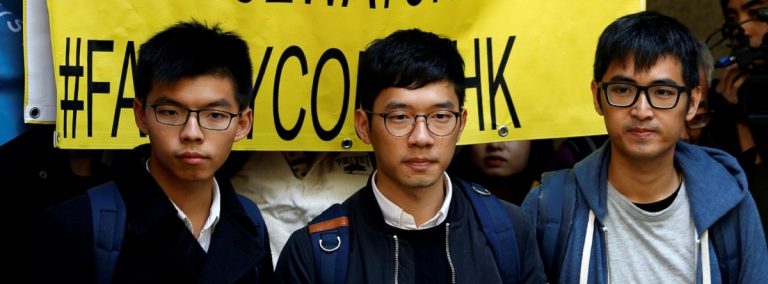
Limits on free speech, academics pressured out of institutions and state-appointed administrators are putting Hong Kong universities’ academic freedom at risk.
A new report by NGO Hong Kong Watch has found that while academic freedom is “alive and generally well” in Hong Kong, the politicisation of universities following the 2014 Occupy protests is putting it under threat.
“By placing arbitrary and clearly political limits on the exercise of speech rights, Hong Kong’s government and universities are undermining Hong Kong’s longstanding rule of law and opening the door for ever greater restrictions on speech,” the report said.
“These universities are in fact compromising their distinctiveness from universities elsewhere in China and thereby actively abandoning their own competitive advantages as world-class research centres.”
As the students and scholars were the key drivers behind 2014 political movement that shook the city-state, China has responded through a “top-down” approach to limit and control the universities – similar elements of academic control in China has been observed to be gradually incorporated into Hong Kong’s universities.
#AcademicFreedom has increasingly deteriorated at #HongKong universities, according to @hk_watch report. https://t.co/qusjkG47FD via @guardian
— Scholars At Risk (@ScholarsAtRisk) January 22, 2018
Kevin Carrico, a professor at Macquarie University in Australia and author of the report, wrote that the situation is a “microcosm of the state of “one country, two systems” as a whole”.
Hong Kong was guaranteed wide-ranging autonomy, such as freedom of expression and a separate education system, under the “one country, two systems” formula after the former British colony was handed over to China 20 years ago.
Unlike China, Hong Kong is a bastion of academic freedom, where a globalised higher education sector hosts successful academic careers and free discussion and debate on topics that would not be possible to the north.
https://twitter.com/joshuawongcf/status/953557256242475008
The 2014 Occupy protests which lasted 79 days and brought many parts of the city to a standstill changed all that. Beijing is now seen to be punishing the academics and students who were the key drivers behind the protests, as part of a wider plan to exert greater control over Hong Kong politics and society, according to the report.
Last week, student activist Joshua Wong was jailed for the second time and that “immediate imprisonment” was the only appropriate punishment.
High Court Judge Andrew Chan said that even though Wong only stayed in the protest area for 90 minutes on the day in question, “his involvement in obstructing the clearance operation was deep and extensive. He played a leading role on that day.”
Independent watchdog needed
The report suggests several policy recommendations in light of this problem, such as urging educators to confront “taboo” subjects and fight growing censorship, as well as returning control to Hong Kong’s universities, instead of placing it in the hands of its chief executive.
It also called for independent monitoring groups to be set up, which would “cover all of the universities in the city” as well as “provide mechanisms for anonymously reporting infringements of academic freedom”.
The United Kingdom, as a party to the Sino-British Joint Declaration, is urged to monitor the situation closely. Further infringements of academic freedom and freedom of speech should be met with clear consequences spelt out by the UK in cooperation with its allies.
Liked this? Then you’ll love these…
Hong Kong student activist Joshua Wong sentenced to jail for second time
Hong Kong student leader Joshua Wong is writing a blog from jail







